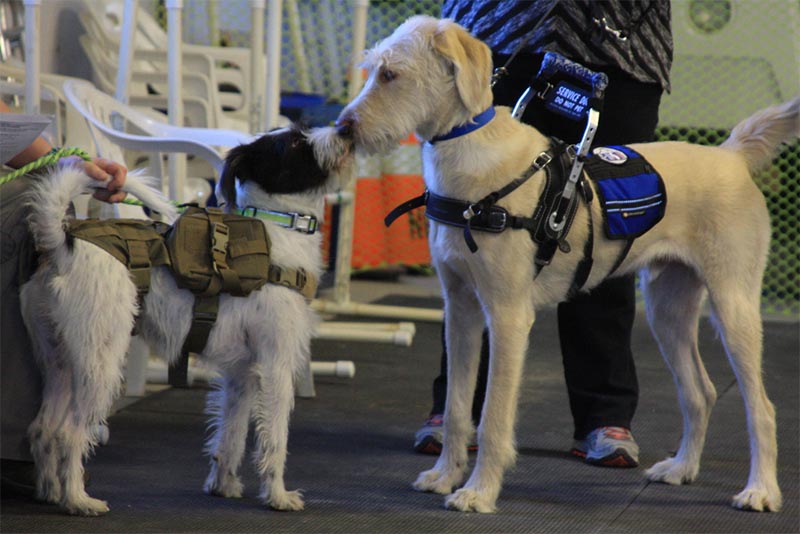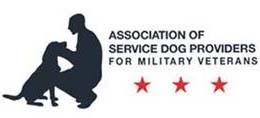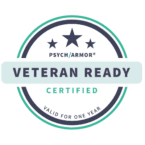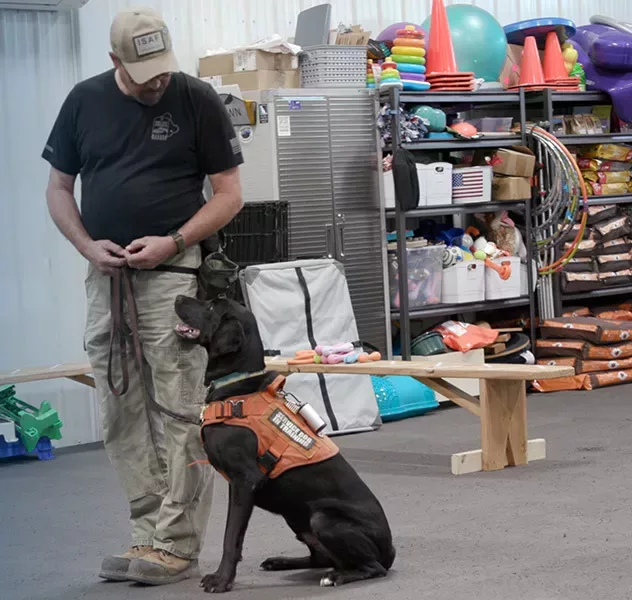“Why do you need a service dog?” While this is a legitimate question, why do complete strangers feel the need to ask it in a way that is both condescending and judgmental? The truth is, not everyone needs a service dog. In fact, most don’t. And there are a growing number of people abusing the system, but we’ll save that for a later day.
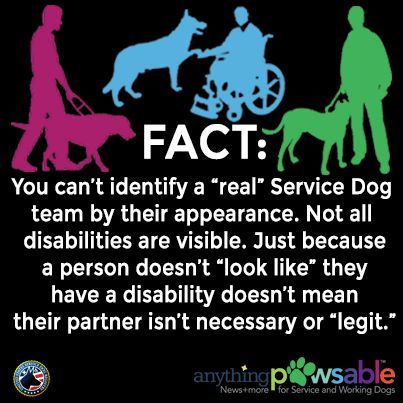
Since our inception, I have worked diligently to not only serve my veterans and rescue dogs, but to educate the public on the difference between therapy dogs, service dogs, and emotional support animals. I also strive to help people understand what dogs can do to help individuals with hidden injuries. What I wasn’t prepared for was what my veterans would have to deal with; not just because of their hidden injuries, but because they have a dog that is wearing a vest with patches indicating “service dog”.
One of my veterans experienced disgusting forms of discrimination at the hands of coworkers at a VA Center. She was mocked, ridiculed, and had chemicals used in an area that her service dog was known to lay while she was on the job. Her rights were violated under the Americans with Disabilities Act and her experiences created a hostile work environment. These are just a few of the things that happened to her:
“I have had a VA Police Officer ask me, “PTSD, what could you possibly have PTSD from?”
I overheard a respiratory therapist say, “They say she has the dog for PTSD, but she doesn’t have PTSD and that dog doesn’t do shit.”
I had a provider say, “Huh, a dog on the floor. That’s clean and sanitary.”
There is some sort of ignorant statement made daily by staff regarding my disability or my service dog. It makes me hate coming to work because I literally get sick thinking about the types of encounters I will have that day. I lose sleep over these events and it is having a great effect on me. As a disabled veteran, I never imagined in a million years that I would experience this kind of discrimination due to my disability while working in the VA. It should be the one place I should feel completely welcomed and completely at home. It is exhausting.”
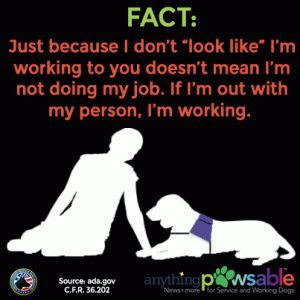
The men and women who serve our country, regardless of when or where they served, should be honored, not subjected to harassment or devaluing. Seeing someone who looks young and healthy with a service dog should not be taken as an opportunity to question their need of the dog.
There are only two things that can be asked of individuals with service dogs: 1) Is the dog a service animal required because of a disability? 2) What work or task has the dog been trained to perform? These questions may not be asked if it is obvious why the individual requires a service dog.
As I embarked on this journey, I had no idea one of the training lessons in the Service Dog program would have to be “How to deal with uneducated and oftentimes rude people.” Or that I would need to help them learn how to explain the differences between emotional support animals, therapy dogs and service dogs and how they can help our veterans who live with their post-traumatic stress disorder and traumatic brain injuries (to help educate those oftentimes rude people).
In a world where we take for granted our freedoms, let us learn to be kind, understanding, and thankful. And instead of asking a veteran why they need a service dog, let us thank them for their service and let them carry on with their day.
-DeeDe
